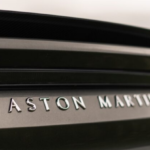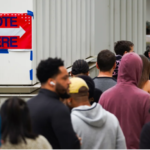In response to evolving consumer demands, Jaguar Land Rover (JLR) is increasingly focusing on plug-in hybrid electric vehicles (PHEVs) as a transitional option toward fully electric vehicles (EVs). This shift acknowledges that many buyers view PHEVs as a practical stepping stone, allowing them to acclimate to electric driving while alleviating concerns about battery range through the use of a hybrid petrol engine.
Mark Camilleri, JLR’s electric vehicle programme director, emphasized that PHEVs provide an introductory ownership experience, integrating both home and public charging options. This strategy is aimed at easing customers into electric driving habits before they fully commit to EVs. The hybrid systems in JLR vehicles can seamlessly switch from electric power to fuel, offering flexibility for longer journeys and addressing the “range anxiety” that often accompanies the transition to full electric driving.
The popularity of PHEVs is evident in the UK market, where hybrid sales surged by 26% this year, surpassing diesel sales for the first time. Notably, JLR’s Defender and Range Rover models have experienced significant demand. Global PHEV sales for the Range Rover have jumped by 47%, while Defender sales rose by 23%, following a remarkable 59% increase in global PHEV sales in the year leading up to March. In the UK alone, JLR reported PHEV sales of 20,800 units, marking a 55% increase compared to the previous year.
JLR’s current PHEV models, particularly the Range Rover, offer an electric-only range of up to 70 miles, which comfortably exceeds the average daily mileage of 20 miles for UK drivers. This capability enables users to undertake zero-emission commutes in urban environments, enhancing the appeal of hybrid technology.
Looking ahead, JLR has outlined a clear commitment to electrification, with plans to launch fully electric versions of its popular models—Range Rover, Defender, and Discovery—by the end of the decade. Meanwhile, Jaguar, JLR’s sister brand, is set to transition to a fully electric lineup next year, further underscoring the group’s dedication to sustainability and innovation.
As JLR navigates this transformative phase, the company aims to balance the immediate needs of consumers who prefer hybrid solutions while simultaneously preparing for a future dominated by electric vehicles. This dual strategy not only reflects the current market dynamics but also positions JLR as a key player in the evolving automotive landscape.









